#John Charlesworth
Explore tagged Tumblr posts
Photo




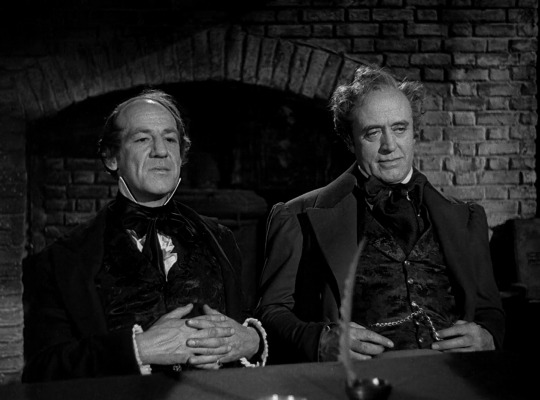

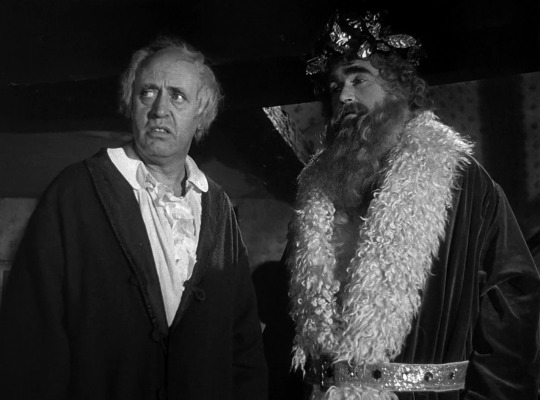
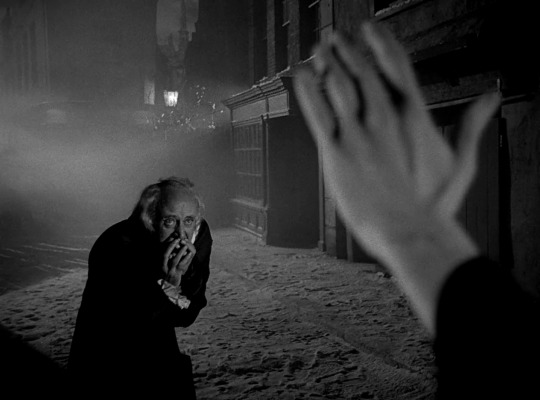


A Christmas Carol (AKA Scrooge) | Brian Desmond Hurst | 1951
#Brian Desmond Hurst#A Christmas Carol#Scrooge#1951#Scrooge 1951#Alastair Sim#Michael Dolan#Francis De Wolff#Michael Hordern#Czeslaw Konarski#David Hannaford#Glyn Dearman#Moiya Kelly#Catherine Leach#Luanne Kemp#John Charlesworth
40 notes
·
View notes
Text
Chris Charlesworth, Paul's interview for Melody Maker and John's furious letter to Paul published in Melody Maker
I know, it's long read, sorry, but I need to figure out when all got wrong, because - just look:
John’s John. John wants to wipe everything away and start again, but in doing so he never wipes anything away. He wants it to be him and Yoko against the world, or whatever, but he`s still in with all the others, in with all the contracts and going into the meetings and everything.“He’s getting pissed off with it though – I sense it. I’ve had a couple of good conversations recently with just John, and I’ve felt a lot of common ground with him.* And I watched him on the Parkinson show, and really a lot of the things he’s into, we’re into as well.”
(Paul McCartney, Nov 1971, interview with Steve Peacock for Sounds)
*after John’s ‘Imagine’ with HDYS but befor John's letter to Paul in Melody Maker
There’s no hard feelings or anything, but you just don’t hang around with your ex-wife. We’ve completely finished. ’Cos, you know, I’m just not that keen on John after all he’s done. I mean, you can be friendly with someone, and they can shit on you, and you’re just a fool if you keep friends with them. I’m not just going to lie down and let him shit on me again. I think he’s a bit daft, to tell you the truth. I talked to him about the Klein thing, and he’s so misinformed it’s ridiculous.**
(Paul McCartney interviewed by student journalist Ian McNulty for the Hull University Torch, May 1972 [From The McCartney Legacy, Volume 1: 1969 – 1973 by Allan Kozinn and Adrian Sinclair, 2022)
**after John's letter to Paul in Melody Maker (published 4th Dec 1971)



What happened?
November 11th (or 10th), 1971 Paul says to Chris Charlesworth:
The joke is, though, that we don’t have to do trials. It’s not necessary. If the four Beatles signed a bit of paper, or even ripped the old contract up and said, “This contract is no longer valid, we all hereby said it, we all legally direct the shareholders…” the whole thing, to wind it all up, we could do it. And if that’s really what he wants, he could do it this minute. [snaps fingers] I’d prefer not to ever talk about the Beatles thing again in these kinds of terms, and just get on with what I’m doing. I really would prefer to do that. If they’d let me. It’s really down to them, you know. They don’t think it’s down to them. I think they think it’s down to me, somehow. Like he was saying, you know. But I don’t – I’m sure it isn’t. I’m in the minority, I’m being out-voted. And like I say, if the majority agreed to it, we could do it. See, I said [to them], “Look, the thing is, we’ve got all these advisors and all this sort of stuff. I think what would be good to do is the four of us just get a document – we don’t even have to meet for long, we just get some kind of document – and sit down and say, without even asking Klein, Eastmans, anybody, without saying to anyone, we’ll just write a little thing saying, ‘We hereby split up, and everything’s got to be shared by four,’ and then just lay it out on them. Say, ‘Here, now, sort it out.’” And I was saying that would be good. But John’s saying, “Oh, yeah, but that’s like asking us to stop the bombing in Vietnam.” What do you mean? Don’t put me – don’t call me the bloody American, I’m not the aggressor. That’s what I mean. They think I’m like – ’cause I’ve done the High Court action, ’cause I look like the aggressor, they’re sort of thinking of me in terms of America. But really, I’m Vietnam! I’m the one getting screwed, you know! I mean, they’re – I’m not… you know. We eventually decided we were all Vietnamese. [laughs]
And circa November 20th John reads in Melody Maker:
“I just want the four of us to get together somewhere and sign a piece of paper saying it’s all over, and we want to divide the money four ways.” “No one else would be there, not even Linda or Yoko, or Allen Klein. We’d just sign the paper and hand it to the business people and let them sort it all out. That’s all I want now. But John won’t do it. Everybody thinks I am the aggressor but I’m not you know. I just want out.”
November 11th (or 10th), 1971 Paul says to Chris Charlesworth:
I don’t want to go putting the other three down particularly. That’s – that’s my trouble really. I probably should. I probably should, really, just rant and rave and call them the biggest shits on earth, you know, because they’re certainly not cool, what they’re doing. [pause] But you know. They don’t believe – they don’t think what I’m saying is true. They think that I’m just pulling a fast one. Klein’s told them I’m trying to get control of the company and everything. He keeps saying, “He’s trying to get the song publishing” and all those kind of little red herrings everywhere. But I tell you, I just happen to know that the Eastmans just are… just more moral, than Klein. I mean, really, the reason that turned me on to them is they said they don’t ever sign people. They don’t sign people. They just get paid a fee. They don’t bother with the other fees. Just pay a fee. I just pay them a fee. ‘Cause I don’t like having everything in a sack. I’m not into them for anything. … He [Klein] sort of says, “Why? I’ll buy it for you, and I’ll give it to you.” Well, bloody hell, you know, he wants to get in with the Beatles so bad he’s got to give them big things to show them he’s a good player. But he’s not good enough. He’s not good enough, I don’t think. I don’t think he’s really really got it. I don’t think he’s really got the goods. I think he’s a fantastic talker, he’s a fantastic all of that, you know, and he’s told George and John that he’s got ’em Newsweek and Time. He told me all that, you know. He said, “I’m going to make the Beatles bigger than they’ve ever been.” But all I have to say is as far as I’m concerned, he’s never really come up with it. I mean, I saw him in his Playboy interview, he says, “McCartney said,” “McCartney rang up George…” He’s being careful, he sets the whole thing up in the interview. He says, “McCartney was asked to do the Madison Square Garden in aid of the Pakistani refugees.” [derisive laughter] You know, “pakistani refugees”. “McCartney was asked to do it, and you know what the guy said? He said, ‘Sure, I’ll do it! If you dissolve the partnership.’ What kind of shit is that?” That was Klein’s kind of thing. The main thing was I said to George that the reason I can’t do it is if I come it’s, “The Beatles have got together again.” And it’s the press, and it’s all that [inaudible], and it’s all for [Klein]! And his shares shoot up, and I… go and make him happy, you know. I mean, if I’dve gone, you never know, John might’ve gone, and the Beatles are together again, and for the press and the world that would’ve been your story, you know? So I’ve got to think that. I’m forced to think that way now. But you can say what I would’ve done had it not have been Klein in, you know. I don’t know. I might’ve easily done it. I might’ve done it. The fact of the matter is, Klein was in there, and the reason why I couldn’t do it was ’cause if I go do it, then I’m supporting Klein. Then he’s organising the contract, and all he has to do there is put in a little picture with the Beatles in Billboard next week, you know. But, Allen’s a nice fella, a good talker, and the others really dig him. They really like him. So you can’t say anything bad there, you can’t – you can’t tell them not to. I think I’ve made a mistake, actually, in trying to advise them. Every time I ring up I say, “Look, he’s had a million and a half, and you haven’t got it,” and I think it pisses them off. I think that also – I think they sort of secretly think I might be right, too.
When Let It Be came out, for the first time ever, there was a little bit of hype on the back of the Beatles album, and it said, “A new-phase Beatles album”. And what it really meant was… you know. “The Beatles have split.” But that’s what I object to. “A new-phase Beatles album” is what they put on the back of it. You see, that is to me, that doesn’t really sort of tell – I can’t, I don’t dig it, you know. I see John, and his whole sort of image is very honest and open and all that. And I’m sure, I know he is, you know! LINDA: He believes [Klein]! PAUL: He’s alright, John. But I mean he manoeuvred, and he knows he manoeuvred. He did a whole lot of it. He said in that Rolling Stone article [conducted by Jann Wenner], he manoeuvred all that Klein bit. And I don’t think anyone was really into manoeuvring at that time outside of John and Klein, you know. It was very definitely sort of a manoeuvre. It was done – like I said, “a new-phase Beatles album”, [and then be told to] sign a new contract just after we’ve been told we’re not gonna play together again. I said, “Well, isn’t that a bit silly?” And Klein said, “It doesn’t make any difference. You get a new royalty, if you don’t do any more stuff, you still get more [royalties] than you’ve made ever.” Now what I didn’t realise was yeah, that was all true, but you’d have to sign yourself up again. ... Like I say, I think it’ll just be a whole lot healthier when I do get out. Just for them, too. ‘Cause I don’t like all this stuff, where I’ve got to… Because if I read a thing, whereas I would have read it with some sympathy towards the Beatles and Klein, I can’t any longer. I read it – and I tend to see the other side of it, you know.
And circa November 20th John reads in Melody Maker:
Paul’s bitterness towards Allen Klein is obvious, but his attitude towards the other three Beatles seems more of concern than of dislike. He worries about their affairs but is tired of warning them. They are tired of his warnings, so Paul just wants to get out.
and
…Linda, whose hand is in constant contact with Paul. “He’s talking about money now. That’s one of his pet points. He’ll never stop. Denny and Denny are protesting, but there’s nothing I can do,” she says before I face the action.
and
“I said to George the reason I couldn’t do it was because it would mean that all the world’s press would scream that The Beatles had got back together again and I know that would have made Klein very happy. It would have been a historical event and Klein would have taken the credit. “I didn’t really fancy playing anyway. If it wasn’t for Klein I might have had second thoughts about it but I don’t know, really. Allen’s a good talker. The others really dig him, but I’ve made the mistake of trying to advise them against him and that pissed them off. I think they might secretly feel that I am right though.
November 11th (or 10th), 1971 Paul says to Chris Charlesworth:
Paul: I liked Imagine. Yeah, I think Imagine’s good. I didn’t like the others. CH: You didn’t like the others. Paul: No. Well, I just sort of give them one listen-through and see if there’s anything I can pinch. [pause] [John] says, “You live with straights.” Yeah… so what? What’s so criminal about that? You know, I like straights. I quite like some straight people. I have straight babies! [laughter] But saying to me ‘Yesterday’’s the only thing I’ll ever do, well… you know. That doesn’t bother me. Hey, it’s not bad. If it is the only thing I’ve ever done, then that’ll do me. But it isn’t! And he bloody knows it. It’s not the only ever thing. Because he’s sat here, in this very room, and he’s watched me do takes, and he’s dug it. And he knows it, you know. But he’s trying to sort of wipe it all away. John’s – John’s – you know. John’s John. ’Cause I talked to him, I had a couple of good conversations recently – with only John, really… But I felt common ground with him. I saw him on the Parkinson show, and really most of what he’s saying is what we’re into. What we want.
And circa November 20th John reads in Melody Maker:
“John and Yoko are not cool in what they’re doing. I saw them on television the other night and thought that what they were saying about what they wanted to do together was basically the same as what Linda and I want to do“. “John’s whole image now is very honest and open. He’s alright is John. I like his ‘Imagine’ album, but I didn’t like the others. ‘Imagine’ is what John is really like, but there was too much political stuff on the other albums. You know, I only really listen to them to see if there is something I can pinch,” he laughs. CH: And how do you sleep? “I think it’s silly. So what if I live with straights? I like straights. I have straight babies. It doesn’t affect him. He says the only thing I did was ‘Yesterday’ and he knows that’s wrong.” Paul motions to the studio below. “I used to sit down there and play and John would watch me from up here and he’d really dig some of the stuff I played to him. He can’t say all I did was ‘Yesterday’ because he knows and I know it’s not true.” ‘Yesterday’, it seems, is a bone of contention with Paul; in fact, all the Beatles classics that he is associated with. He doesn’t own them but feels he ought to.
Why Chris wrote like that? I suppose, it (shit) happened because he was badly biased and unprofessional.

And you know what? November 20th not only Melody Maker publishes Paul's interview. Steve Peacock in Sounds tells very similar story. We can compare - and what we'll see?
Before John said he was leaving The Beatles I was lying in bed at home one night and I thought I would like to get a band together like his Plastic Ono Band. I felt the urge because we had never played live for four years. We all wanted to appear on a stage but not with The Beatles. We couldn’t do it as The Beatles because it would be so big. We’d have to find a million seater hall or something.
(Paul McCartney, November 11th, 1971, interview with Chris Charlesworth for Melody Maker) and
The night before John said he was leaving the group and all that, we were at home and it suddenly dawned on me “If everyone else doesnt want to do it, I’ll get my own band, even if it’s just a little country and western thing or something like Johnny Cash, just so I can get in there and have a sing.” Because thats all I wanted, just to play. … Everyone did really, everyone was trying to play, but no one wanted to do it with the Beatles.
(Paul McCartney, Nov 1971, interview with Steve Peacock for Sounds)
‘We hereby split up, and everything’s got to be shared by four,’ and then just lay it out on them. Say, ‘Here, now, sort it out.’” And I was saying that would be good. But John’s saying, “Oh, yeah, but that’s like asking us to stop the bombing in Vietnam.” What do you mean? Don’t put me – don’t call me the bloody American, I’m not the aggressor. That’s what I mean. They think I’m like – ’cause I’ve done the High Court action, ’cause I look like the aggressor, they’re sort of thinking of me in terms of America. But really, I’m Vietnam! I’m the one getting screwed, you know! I mean, they’re – I’m not… you know. We eventually decided we were all Vietnamese. [laughs]
(Paul McCartney, November 11th, 1971, interview with Chris Charlesworth for Melody Maker) and
“And John said, “Yeah, but that’s like asking us to stop the bombing in Vietnam.” We eventually decided that we were all Vietnamese, so that’s all right… “But I keep wanting to send him postcards saying ‘The war’s over if you want it’ – tell him what he’s saying. It’s just crazy, I’m sure the truth’s a whole lot more simple than it’s made out.”
(Paul McCartney, Nov 1971, interview with Steve Peacock for Sounds)
John’s – John’s – you know. John’s John. ’Cause I talked to him, I had a couple of good conversations recently – with only John, really… But I felt common ground with him. I saw him on the Parkinson show, and really most of what he’s saying is what we’re into. What we want.
(Paul McCartney, November 11th, 1971, interview with Chris Charlesworth for Melody Maker) and
“John’s John. John wants to wipe everything away and start again, but in doing so he never wipes anything away. He wants it to be him and Yoko against the world, or whatever, but he`s still in with all the others, in with all the contracts and going into the meetings and everything. “He’s getting pissed off with it though – I sense it. I’ve had a couple of good conversations recently with just John, and I’ve felt a lot of common ground with him. And I watched him on the Parkinson show, and really a lot of the things he’s into, we’re into as well.”
(Paul McCartney, Nov 1971, interview with Steve Peacock for Sounds)
Paul: I liked Imagine. Yeah, I think Imagine’s good. I didn’t like the others. CH: You didn’t like the others. Paul: No. Well, I just sort of give them one listen-through and see if there’s anything I can pinch.
(Paul McCartney, November 11th, 1971, interview with Chris Charlesworth for Melody Maker) and
“I liked ‘Imagine’, I didn’t like the others much. But really, there’s so much political shit on at the moment that I tend to play them through once to see if there’s anything I can pinch.”
(Paul McCartney, Nov 1971, interview with Steve Peacock for Sounds)
“We will start by just turning up at a place we fancy visiting and just playing a straightforward gig. We might use another name to keep it quiet. We have rehearsed and we can play live together. In fact, it sounds quite good. It doesn’t really matter that much. “I don’t want Wings to become a media group, with our signatures on knickers which are sold for promotion. I don’t like that now. I was happy with that situation in The Beatles, but it died in the end. We are starting off as a new band, but if we ever get to be huge like The Beatles it will be very difficult.”
(Paul McCartney, November 11th, 1971, interview with Chris Charlesworth for Melody Maker)
and
“With this band, we play good together live because nobody’s too hung up about what he’s playing. We’ll go round to Denny’s house and just sit there playing songs that we half-know. It’s good. “We don’t want to be a media group – we don’t want to go everywhere and plug everything and have knickers with our name on them and all that. That won’t work for me now – it’s all done. It was great while it lasted but it’s over now.” “Yeah, it was great, obviously, and I did enjoy it, loved it, but it got to be a bit tight at the end. It was when we got to be Beatles with a big B that things began to be difficult because even if we wanted to go out and play, how the hell could we do it? We’d have had to have done a big million seater thing, and that’s why I was suggesting them that we all just go away somewhere and play, like I want to do with Wings. Ricky and the Redstreaks at Slough Town Hall or something – and everyone turns up for the Saturday night dance and finds it’s us. “We’re all musicians, and the fun of being a musician is being able to play live to people. For us, it might be a year, it might be two years, or it might be next week. We don’t know, we might not even fancy going live in the end, and if that happens it’s all right too.
(Paul McCartney, Nov 1971, interview with Steve Peacock for Sounds)
My best playing days were at the Cavern lunchtime sessions. We’d go on stage with a cheese roll and a cigarette and we felt we had really something going. The amps used to fuse and we’d stop and sing a Sunblest bread commercial while they were repaired.
(Paul McCartney, November 11th, 1971, interview with Chris Charlesworth for Melody Maker) and
My best playing days were at the Cavern, lunchtime sessions, when you’d just go on stage with a cheese roll and a coke and a ciggie, and people would give you a few requests, and you’d sing them in between eating your cheese roll. That was great to me, I think we got something great going in those days – we really got a rapport there, which we never got again with an audience. And if an amp blew up or something, it didn’t matter, because we’d just pick up an acoustic and sing the Sunblest commercial or something – and they’d all join in.
(Paul McCartney, Nov 1971, interview with Steve Peacock for Sounds)
It seems like the same conversation, isn't it? But if it's so, Paul about HDYS said not “I think it’s silly. So what if I live with straights? I like straights. I have straight babies. It doesn’t affect him. He says the only thing I did was ‘Yesterday’ and he knows that’s wrong.” as it tells Chris in Melody Maker. Paul said:
“I think it’s silly. If he was going to do me he could have done me, but he didn’t. That didn’t phase me one bit. ‘You live with straights’. Yeah, so what? Half the f-king world’s straight; I don`t wanna be surrounded by hobnailed boots. I quite like some straight people, I’ve got straight babies. ‘The only thing you did was Yesterday’. That doesn’t bother me. Even if that was the only thing I did, that’s not bad, that’ll do me. But it isn’t, and he bloody knows it isn’t because he’s sat in this very room and watched me do tapes, and he’s dug it.”
(Paul McCartney, Nov 1971, interview with Steve Peacock for Sounds)
And not only this. Look,
Paul: “I thought ‘Go Now’ was fabulous. He came round to see me and brought a guitar and we played some things together and it was great. We just rehearsed a couple of numbers together.” It seems that, within reason, just about everybody plays everything on the album. The drums, naturally enough, are Denny’s main concern, although additional percussion is contributed by all. Paul plays most of the lead guitar – “I’d always fancied myself as a lead guitar” – while Denny plays harmony lead, chords and some bass. Paul too plays bass and mainly the basslines on the album have been overdubbed. Linda plays most of the piano and organ lines. “Linda isn’t very experienced so the keyboard parts tend to be very simple and that is, I think, very valuable. It has an innocence rather like a child’s painting,” said Paul.
(Paul McCartney, November 11th, 1971, interview with Chris Charlesworth for Melody Maker)
and
“I play all the lead guitar on the album,” said Paul, “except for a few places where Denny (Laine) and I play in harmony. I fancy myself as a guitarist, see. He did have a solo but I took it off him.” Denny smiled. Linda sings, writes with Paul, and plays a lot of keyboards. “I like what she does. Her style isn’t like that old, hard pro thing that’s got all the technique, but it’s like children’s drawings. That’s not a very good simile, but it’s got what children’s drawings have got… innocence.”
(Paul McCartney, Nov 1971, interview with Steve Peacock for Sounds)
Talk turned to Beatles live shows – or lack of them. “John wanted to do a big thing in Toronto but I didn’t dig that at all. I hear that before he went onstage for that thing he was sick, and that’s just what I didn’t want. Like anybody else, I’d have been nervous because of the Beatle thing.
(Paul McCartney, November 11th, 1971, interview with Chris Charlesworth for Melody Maker)
and
“My best playing days were at the Cavern… That was great to me, I think we got something great going in those days – we really got a rapport there, which we never got again with an audience… … “That was the stage with the Beatles I thought was best, and thats the way Id like to be able to play again – if a few people happen to turn up to a gig then its usually great, but if youre all sitting there like penguins waiting to judge me, then Im going to be nervous, and Im not going to enjoy it. Im not like John, who swallows his nerves in Toronto and be sick just before he goes on – that Im not going to go through thank you. Its not necessary, and if its not necessary, I`m not going to do it.
(Paul McCartney, Nov 1971, interview with Steve Peacock for Sounds)
I might be wrong but the Chris Charlesworth looks like a snake or like immature Mark our Lewisohn who loves to manipulate words for to get the truth as he imagine it. The Chris' truth is 'there was no love lost between Paul and the other three Beatles, especially John' and he pictures it. And his article led John to anger, he wrote the letter - and we all know what happened then.
So, may be he had any reasons to think that? May be he knew Paul and John many years and can see how much their relationship changed?
…I first met Paul on Monday November 8, 1971, at a party to celebrate the launch of his group Wings and their album Wild Life at the Empire Ballroom in London’s Leicester Square. He was wearing a loud check jacket and, like John would do, seemed much smaller in real life than I’d always imagined him to be. He was surrounded by people all night but at some stage in the evening I asked John Entwistle, another guest, to introduce me. I figured that since John was in the same trade he’d know Paul and sure enough he did. We managed to push past everyone and I had a brief chat, the first time I’d ever spoken to a real live Beatle. Me: “Why the Empire Ballroom on a Monday night?” Paul: “Why not?” Linda: “We thought it would be a nice idea to invite a whole lot of our friends to a big party where they could bring their wives.” Paul: “EMI are paying for it.” Me: “When will we hear Wings live?” Paul: “Well, it should be soon now. We want to start in a very small way, maybe do some unadvertised concerts or something.” As I would do two years later with John, I simply requested from Paul a more in-depth interview in the near future, and a session was granted for Wednesday, November 10 at Abbey Road Studios. The interview took place in the control room of Studio Two, the studio where The Beatles had recorded almost all of their songs. I tried not to show it but I was in awe not just of Paul but also my surroundings. Here it was, I remember thinking, that all four of them sat and listened to playbacks of everything from ‘She Loves You’ through Sgt Pepper to Abbey Road. If these walls could speak… Although ostensibly to promote his new band and album, the interview strayed into Beatles-related topics and I certainly came away with the impression that there was no love lost between Paul and the other three Beatles, especially John. This probably explains why my subsequent story in MM was headed “Why Lennon Is Uncool.” <…> This was the only substantial interview I ever did with Paul, although I would encounter him many times again over the years.
(Chris Charlesworth, 2014, 'PAUL McCARTNEY - Here There And Everywhere')
add to this
#chris charlesworth#paul mccartney#john and paul#john lennon#interview: paul#interview: john#1971#melody maker#steve peacock#break up#accidental divorce#gimme some truth
92 notes
·
View notes
Text

game shows touch our lives - the mountain goats // unidentified man 3 - sarah charlesworth
#yeah I’ve got the game shows touch our lives brain rot#it’s been on repeat and there it will stay#idk if this is something that needs a trigger warning#ask to tag#aesthetic#aes#game shows touch our lives#the mountain goats#john darnielle#sarah charlesworth#photography#unidentified man 3#lyrics#lyric#lyric edit#the mountain goats lyric edit#tmg#edit#art#h8#my edit#to fall is the first step in flying#text#typography#typo
457 notes
·
View notes
Text



John Antalek: Darren Criss co-hosts our fall Broadway special. Art’s final taping!
#darren criss#john antalek#michelle charlesworth#art moore#broadway backstage: fall preview#facebook#sept 2024
32 notes
·
View notes
Text
London’s Bookery Gallery’s “All About Ink” exhibition opens this weekend
A smashing exhibition of comic art opens at the Bookery Gallery in London this weekend
London’s The Bookery Gallery hosts an inky extravaganza, All About The Ink!, this month, opening on Saturday 8th April and running until 6th May 2023. An exhibition of contemporary cartooning and comics art, the show will be a cavalcade of inky splendour, hanging original works by over 20 cartoonists, alongside digital displays of works in progress, coloured finishes and short films. The…
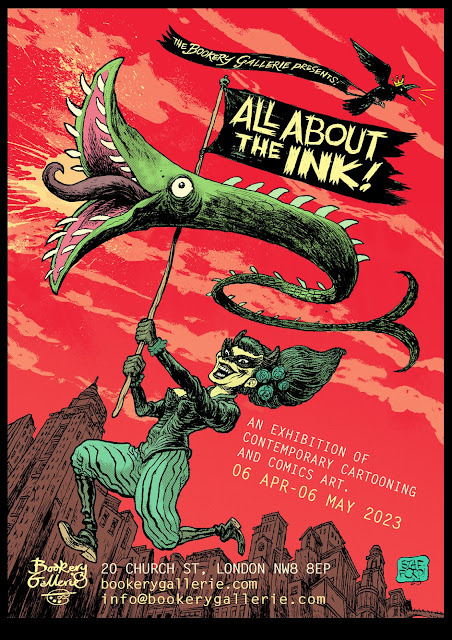
View On WordPress
#Bookery Gallery#Bryan Talbot#David Hine#Douglas Noble#downthetubes News#Ed Pinsent#Events London#Exhibition#Fraser Geesin#Hunt Emerson#Jason Atomic#Jenny Robins#John Paul Milne#Julian Hanshaw#Kate Charlesworth#Krent Able#Lucy Sullivan#Mark Stafford#Michael S Kane#Oscar Zarate#Rachael Ball#Sarah Gordon#Sean Azzopardi
4 notes
·
View notes
Text
Great mastery

"All along the evening, John Paul Jones passes from bass, to organ, acoustic (mandolin). Of these three instruments, he demonstrates a great mastery, admirably supported by John Bonham whose strike is dry and precise, not one of the least advantages of the group."
- From the March 23, 1971 London (Marquee) concert review by C. Charlesworth (Melody Maker)
#john paul jones#jonesy#led zeppelin#robert plant#planty#jimmy page#pagey#john bonham#bonzo#60s#70s#70s rock#70s music#rock music#ourshadowstallerthanoursoul
71 notes
·
View notes
Text
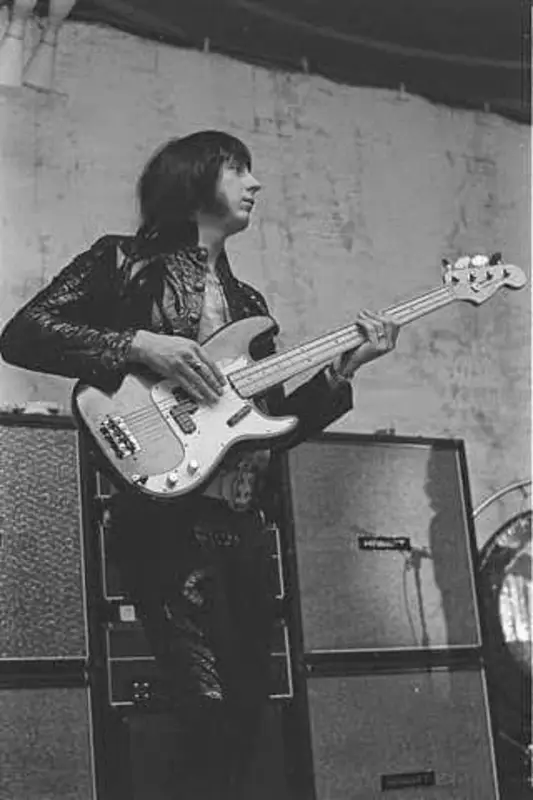
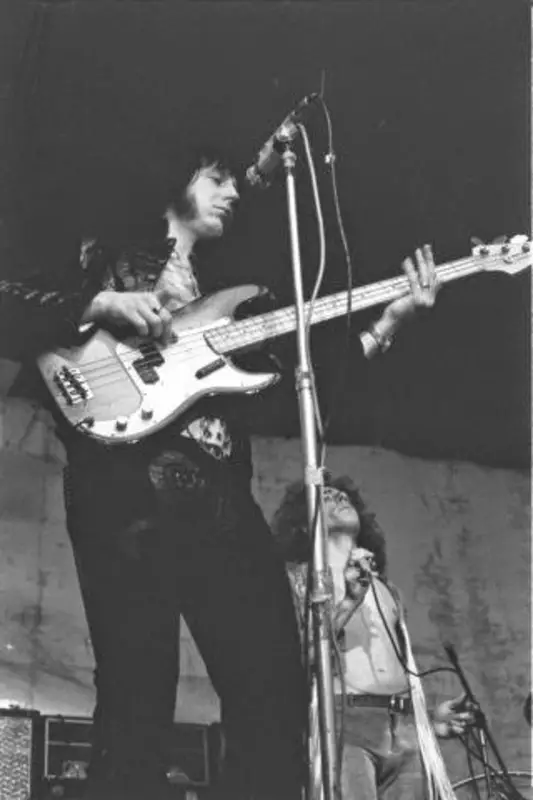
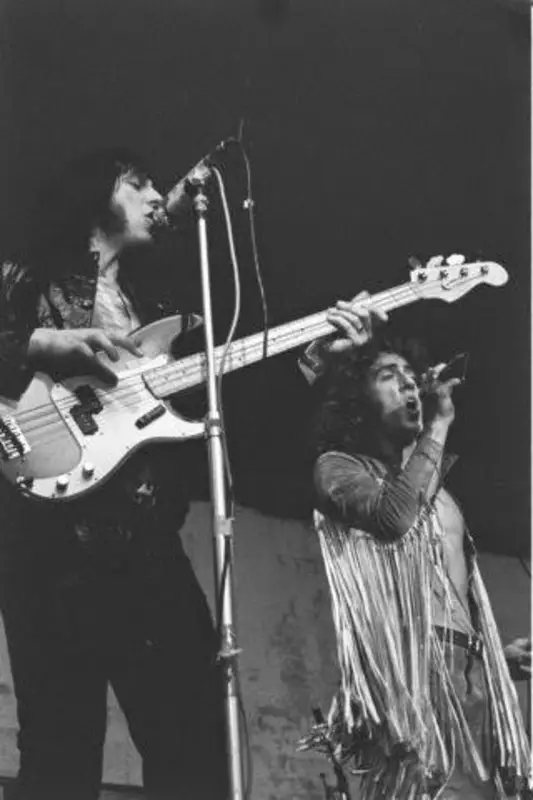
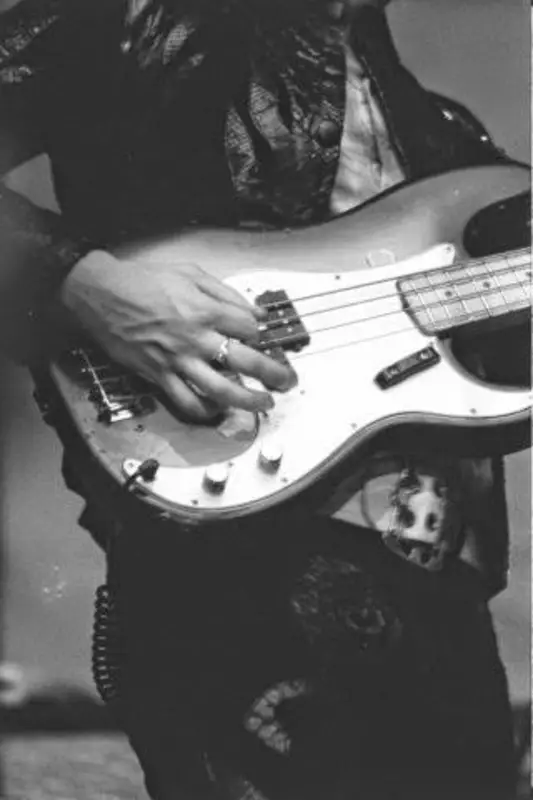

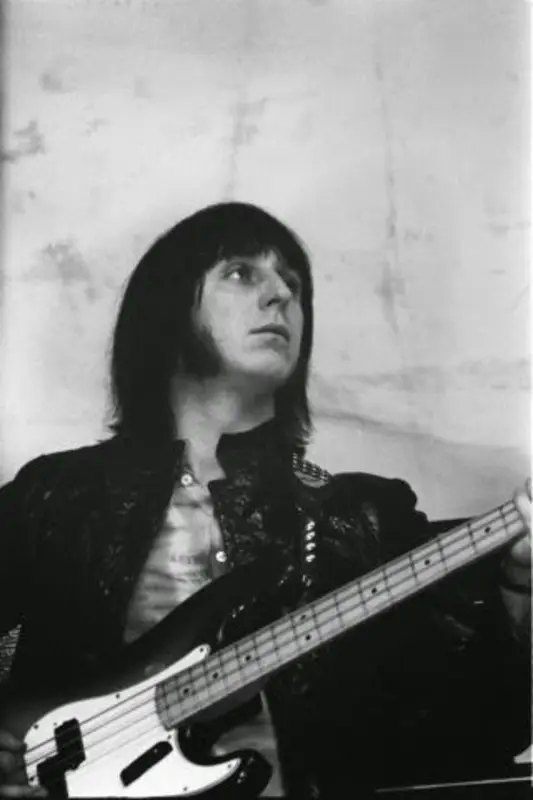

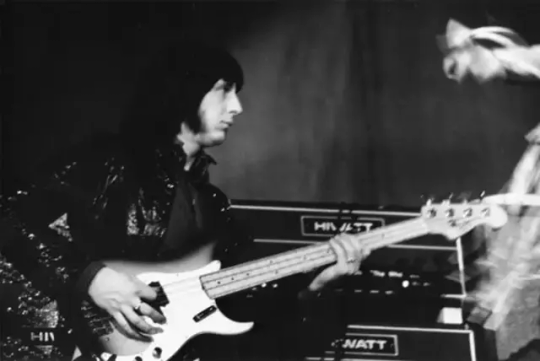
"…JOHN ENTWISTLE, SURELY THE MOST GIFTED BASS PLAYER OF HIS GENERATION…"
PIC(S) INFO: Mega spotlight on THE WHO's John Entwistle (1944-2002), a.k.a., "The Ox," laying down fat bass chords and solid rhythms during the recording of the "Live at Leeds" LP at Leeds University on February 14, 1970. 📸: John Rettie.
"…John Entwistle, surely the most gifted bass player of his generation, held a beat but at the same time played imaginative runs -- or fat chords -- at every notch on his fretboard. With all this going on around him, Pete was allowed the luxury of soloing at will -- knowing that if he missed a note it didn't matter because the sheer din of Moon and The Ox covered everything up -- or doing what he did best, which was to establish a chord riff and ram it home."
-- CHRIS CHARLESWORTH, "Live at Leeds" 1995 CD remaster liner notes
Source: http://rnrchemist.blogspot.com/2014/06/the-who-live-at-leeds.html?m=1.
#THE WHO#John Entwistle#Bass guitar#Hard rock#Live at Leeds#Bass chords#Bassist#John Entwistle The Ox#1970s#Leeds University#Rock photography#Bass player#Bass guitarist#Leeds UK#Leeds#The Ox#The Ox John Entwistle#WHO 1970#THE WHO Live at Leeds#Live at Leeds 1970#THE WHO 1970#Heavy rock#Heavy Metal#70s rock#John Rettie#Roger Daltrey#1970#Valentine's Day#St. Valentine's Day#THE WHO band
7 notes
·
View notes
Text
Court Circular | 17th June 2023
Buckingham Palace
His Majesty was present at The King’s Birthday Parade on Horse Guards Parade this morning at which The King’s Colour of the 1st Battalion Welsh Guards was Trooped.
The King was accompanied by The Queen (Colonel, Grenadier Guards), The Duke of Kent (Colonel, Scots Guards), The Prince of Wales (Colonel, Welsh Guards), The Princess of Wales (Colonel, Irish Guards), The Princess Royal (Gold Stick in Waiting and Colonel, The Blues and Royals, Royal Horse Guards and 1st Dragoons) and The Duke of Edinburgh (Royal Honorary Colonel, 1st Battalion London Guards).
His Majesty was attended by Lieutenant General Sir Edward Smyth-Osbourne (Colonel, The Life Guards), Lieutenant General Sir James Bucknall (Colonel, Coldstream Guards) and Major General Christopher Ghika (Major General Commanding Household Division).
The Lord de Mauley (Master of the Horse), Colonel Toby Browne, Lieutenant Colonel Stephen Segrave, (Mounted Equerries in Waiting), Lieutenant Colonel Michael Vernon, Captain James Boggis-Rolfe (Dismounted Equerries in Waiting) and Colonel Mark Berry (The Life Guards, Silver Stick in Waiting) were in attendance.
Colonel Jeremy Bagshaw (Chief of Staff), Lieutenant Colonel Ralph Griffin (Silver Stick Adjutant) and the Household Division Staff were present.
The Procession was led by Lieutenant Colonel James Shaw, Grenadier Guards (Brigade Major Household Division).
The troops on Parade, under the command of Lieutenant Colonel John Livesey, Welsh Guards (Field Officer in Brigade Waiting), received The King with a Royal Salute.
The Queen, The Princess of Wales with Prince George of Wales, Princess Charlotte of Wales and Prince Louis of Wales, The Duchess of Edinburgh, The Duke and Duchess of Gloucester, Vice Admiral Sir Tim Laurence and other Members of the Royal Family drove to Horse Guards Parade and witnessed The King’s Birthday Parade.
On the conclusion of the Parade, His Majesty rode back to Buckingham Palace at the head of The King’s Guard, preceded by The King’s Troop Royal Horse Artillery, under the command of Major Francesca Sykes, the Massed Mounted Bands of the Household Cavalry, the Sovereign’s Escort of the Household Cavalry Mounted Regiment, under the command of Major William Charlesworth (The Blues and Royals, Royal Horse Guards and 1st Dragoons), and the Massed Bands of the Guards Division.
On arrival at Buckingham Palace, The King’s Guard entered the Forecourt and formed up opposite the Old Guard, the remaining Guards marching past His Majesty. The Household Cavalry Mounted Regiment and The King’s Troop, Royal Horse Artillery ranked past The King.
His Majesty, from Buckingham Palace, witnessed a fly-past by aircraft of the Royal Navy, Army and Royal Air Force, led by Wing Commander Noel Rees, to mark the official celebration of The King’s Birthday.
Royal Salutes were fired today by The King’s Troop Royal Horse Artillery in Green Park and from the Tower of London Saluting Battery by the Honourable Artillery Company, under the command of Captain Alexander Offer.
#court circular#trooping the colour#princess anne#princess royal#tim laurence#timothy laurence#king charles iii#queen camilla#catherine princess of wales#william prince of wales#prince george of wales#princess charlotte of wales#prince louis of wales#sophie duchess of edinburgh#prince edward duke of edinburgh#prince edward duke of kent#birgitte duchess of gloucester#prince richard duke of gloucester
10 notes
·
View notes
Text



My grandfather John has lived until 92. He has been the strongest and most stable man I’ve known and has his whole life imparted values on his three daughters and the rest of us. He has been kind, never mean or bigoted, supported every member of his family - he looked after my grandma through her Alzheimer’s until she passed almost exactly five years ago. He supported me financially through university when my mum couldn’t. He made sure my mum could rebuild her life after her divorce. He took my mums parter in like the son he never had and helped him settle into a solid part of our family. He was up and dressed even on the day he fell ill and was taken to the hospital on Monday- always laughing and chatting and making sure everyone was alright. The last time i visited him, he took me to a farm shop, sat me down for a coffee and said how proud he was of me, and that he loved me and that he had always accepted me whoever i loved or however i identified. I’m sorry I never got to introduce him to my boyfriend Max. He’s asleep on a respirator right now with all three of his girls around him - I’ve had to go out for a smoke just to get some air. He doesn’t like people fussing over him. But while you’re still with us, i just want to say that you are a wonderful man John Charlesworth. You are so so so loved. ♥️🛩️
4 notes
·
View notes
Text
scale: talk Julia Born Conférence Graphisme 2015 One to One JOFF + Julia Born Claes Oldenberg 1961 Store At the frame shop where I worked, we received a men's black ankle sock from the Store, mounted to museum board. parts, folds: Anouk Beckers Rietveld and Jan Van Eyck Brian O'Doherty Aspen 5 + 6 Zoe Leonard You See I Am Here After All Bruno Munari Libro illegibile Lygia Clark Bichos selections: Sarah Charlesworth's Eclipse series John Cage Rolywholyover: A Circus Rosie Lee Tompkins Retrospective + publication 2d representation in 3d space: a website like an architectural space, a wall, a room, a table Julie Peeters website for BILL, 'a magazine without words'
0 notes
Text

BOOK REVIEW: JUST BACKDATED by Chris Charlesworth (2024)
Melody Maker debuted January 1926, and its 36 pages were mostly dedicated to the (then) big band sound and jazz scene. For many decades it left all the rock & roll shenanigans to it's greatest ENEMY, the NME.
By the 1970's, things were much different. Prog rock (fading) and Punk (rising) had elbowed Trad jazz out of the way. By the decades end, if it was old, grey and whistled, this music paper was no longer interested - INSTEAD - fully embracing the pretenders of the New Wave. After all, it was MM journalist, Michael Watts, who "bombed out the bailer" (BBC Radio 1's Bob Harris) in 1978.
JUST BACKDATED is from Michael Watt's colleague - staff writer/ editor, Chris Charlesworth and uncovers his SEVEN YEARS IN THE SEVENTIES at "The Maker", from humble writing beginnings in Slough onto a New York news-desk!!
By now, Chris has many music books to his name, including on David Bowie and The Who, but this latest hardback (published by Spenwood Books) is his own back catalogue; his own back pages:
"My infactuation with pop music came out of nowhere, creeping up on me from the age of ten, perhaps as a way out of the convrentional future expected of me, perhaps because it offered excitement absent from the Yorkshire market town where I was raised, perhaps, like many boys who pick up a guitar, as a way to meet girls.
All three turned out to be true."
Written in a friendly, open style, Charlesworth shares his stories, such as on Steely Dan (Can't Buy A Thrill LP being on heavy rotation in the MM offices), being photographed with the delectable Debbie Harry and receiving a personal postcard from John Lennon. Maybe Lennon's green card was always blue, as the author sagely summaries: "He was no saint, it's true, but never pretended to be either."
JUST BACKDATED is a good work, with occasional sinning.
Rating: 9/10
Just Backdated - Spenwood books
Mark Watkins, 23 September, 2024.
0 notes
Text
Fwd: Other: MolecularEcologyPrize.CallForNominations
Begin forwarded message: > From: [email protected] > Subject: Other: MolecularEcologyPrize.CallForNominations > Date: 7 February 2024 at 05:40:54 GMT > To: [email protected] > > > > We are soliciting nominations for the annual Molecular Ecology Prize. > > The field of molecular ecology is young and inherently > interdisciplinary. As a consequence, research in molecular ecology is not > currently represented by a single scientific society, so there is no body > that actively promotes the discipline or recognizes its pioneers. The > editorial board of the journal Molecular Ecology therefore created > the Molecular Ecology Prize in order to fill this void, and recognize > significant contributions to this area of research. The prize selection > committee is independent of the journal and its editorial board. > > The prize will go to an outstanding scientist who has made significant > contributions to molecular ecology. These contributions would mostly > be scientific, but should also include other kinds of contributions > that were crucial to the development of the field. The previous > winners are: Godfrey Hewitt, John Avise, Pierre Taberlet, Harry Smith, > Terry Burke, Josephine Pemberton, Deborah Charlesworth, Craig Moritz, > Laurent Excoffier, Johanna Schmitt, Fred Allendorf, Louis Bernatchez, > Nancy Moran, Robin Waples, Scott Edwards, Victoria Sork, Fuwen Wei, > Kerstin Johannesson, and Uma Ramakrishnan. > > Please send your nomination with a short supporting statement (no > more than 250 words; longer submissions will not be accepted) and the > candidate's CV directly to Rowan Barrett ([email protected]) > by Friday, April 12, 2024. Organized campaigns to submit multiple > nominations for the same person are not necessary and can be > counterproductive. Also, note that nominations from previous years do > not roll over. Thus, previous nominations should be re-submitted with > an updated supporting statement and CV. > > With thanks on behalf of the Molecular Ecology Prize Selection Committee > > > > > [email protected] > > (to subscribe/unsubscribe the EvolDir send mail to > [email protected]
0 notes
Text
Dress Me Up As A Robber
I wrote this, I think, in the summer of 1980, possibly up in Scotland. And for some reason I just thought, ‘You could dress me up as a robber, but it’s not gonna change my feelings for you’; that was the basic thing. ‘You can dress me up as a soldier / But I wouldn’t know what for / I was the one that told you he loved you / Don’t wanna go to another war’.
(Paul McCartney about Dress Me Up as a Robber (1980/1982), The Lyrics, 2021)
See, I said [to them], “Look, the thing is, we’ve got all these advisors and all this sort of stuff. I think what would be good to do is the four of us just get a document – we don’t even have to meet for long, we just get some kind of document – and sit down and say, without even asking Klein, Eastmans, anybody, without saying to anyone, we’ll just write a little thing saying, ‘We hereby split up, and everything’s got to be shared by four,’ and then just lay it out on them. Say, ‘Here, now, sort it out.’” And I was saying that would be good. But John’s saying, “Oh, yeah, but that’s like asking us to stop the bombing in Vietnam.” What do you mean? Don’t put me – don’t call me the bloody American, I’m not the aggressor. That’s what I mean. They think I’m like – ’cause I’ve done the High Court action, ’cause I look like the aggressor, they’re sort of thinking of me in terms of America. But really, I’m Vietnam! I’m the one getting screwed, you know! I mean, they’re – I’m not… you know. We eventually decided we were all Vietnamese. [laughs] <…> They don’t believe – they don’t think what I’m saying is true. They think that I’m just pulling a fast one. Klein’s told them I’m trying to get control of the company and everything.
(Paul McCartney, Nov 1971, interview with Chris Charlesworth)
“But I keep wanting to send him postcards saying The wars over if you want it” – tell him what hes saying. Its just crazy, I'm sure the truths a whole lot more simple than it`s made out.”
(Paul McCartney, Nov 1971, interview with Steve Peacock)
I spoke to the Eastmans. I said, “If we all think he’s not going to have a tax consequence, let’s give [the indemnity] to him.”’Cause, you know, if all sides are that smart, let’s all offer it. Break the deadlock. I went to New York, feeling like the bringer of good news. I rang him up. “Hello, John, how are you? Hello, how’s the kids? Oh, great. What’s all this about publishing? Yeah, great”—laugh laugh laugh—“What about Apple?” Tense. You know, that was the unfortunate thing in the last ten years. The moment you mention the word Apple, all of us go, eeeeep! Dread and horror and shock goes through all our systems. I said, “Look, as I understand it, you need this indemnity.” John said, “Fucking indemnity. Fucking this, fucking that. You don’t need to give me fucking indemnity, you fucking—” I think we ended up just sort of swearing at each other. I said, “Fuck you, ya big cunt,” ’cause I just couldn’t handle it. I couldn’t be sweet and reasonable anymore. I was shaking for an hour after that. Of course, the funniest thing was, I then meant to ring John Eastman and say to him, “No, no, it’s not gonna work, this whole thing. I tried to do the indemnity, it’s not gonna work.” Of course, I got the phone numbers wrong. I rang John Lennon back instead. [When the phone was answered, I said,] “Hello, John? Yeah, listen, I just—oh—yeah well…” But it was Yoko this time, and then I said, “Look, I didn’t mean for it to get like that—but, shit, you know, it seems to have got…” The funny thing was, they knew I was trying to ring John Eastman immediately after, so that would have reinforced their little feelings about me double-dealing…
(Paul McCartney, 1980, in All You Need Is Love by Peter Brown and Steven Gaines)
The interviews were conducted for the book The Love You Make: An Insider’s Story of the Beatles by Peter Brown and Steven Gaines. Except for Yoko Ono’s interview, they were conducted in England and New York in the fall of 1980, just a few weeks prior to John Lennon’s death on December 8 of that year.
(Peter Brown, 2023, All You Need Is Love, Introduction)
#john and paul#paul mccartney#interview: paul#peter brown#steve peacock#chris charlesworth#dress me up as a robber#the songs we were singing#the lyrics
44 notes
·
View notes
Text
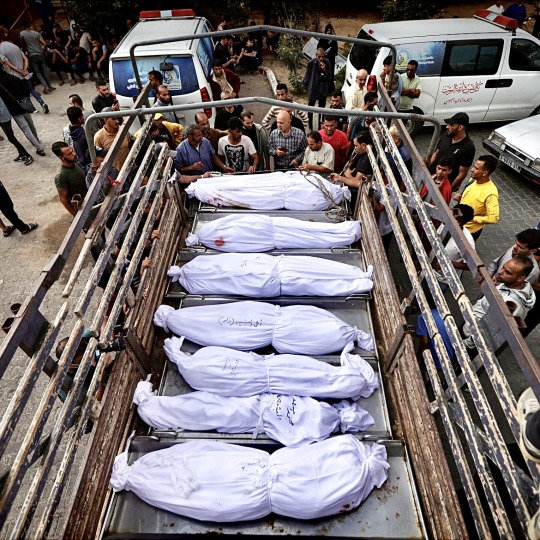
Mourners at the funeral of multiple members of one family, who were killed in an Israeli airstrike in Khan Younis in October 2023. Israel's offensive in the Gaza Strip has killed more than 22,000 Palestinians.
(Photo: Yousef Masoud for The New York Times)
At World Court, Israel to Confront Accusations of Genocide
The International Court of Justice, the United Nations’ highest judicial body, will begin hearings this week in a case brought by South Africa that accuses Israel of committing genocide in Gaza. Israel has categorically rejected the allegations.
By Isabel Kershner and John Eligon
The New York Times - January 10, 2024
•
•

Israel says it only directs its military efforts against Hamas and other terrorist organisations. (Photo: Ariel Schalit / AP)

More than 22,000 Palestinians have died after three months of war, Gaza's health ministry says. (Photo: AFP - Majdi Fathi/NurPhoto)
Israel is facing genocide allegations at the UN's top court. What impact could the case have on the war in Gaza?
The first public hearings in South Africa's genocide case against Israel are set to take place in a high-stakes showdown at the United Nations' top court.
South Africa claims Israel is intending to destroy "a substantial part" of the Palestinian population in Gaza, and will present its argument before the International Court of Justice (ICJ) in the Netherlands on Thursday (local time).
Israel — which has flatly rejected the allegation it is deliberately targeting civilians in its war against Hamas — will then present its defence against the genocide claim on Friday.
By Audrey Courty
ABC News - 11 January 2024
•
•

An expert says the laws of war are a range of principles that aim to reduce suffering.
(Photo: Fatima Shbair / AP)
Human Rights Watch alleges Israel is breaching the rules of war in Gaza — what are they?
There have been many references to "rules of war" being broken, and the UN is investigating whether war crimes have been committed by Israel and by Hamas. But what exactly qualifies as a war crime?
International humanitarian law expert Dr Helen Durham said the laws of war were not created to take a moral stance on a particular conflict but to offer a "balance between military necessity and the principle of humanity" when conflict does occur.
By Olivia Ralph
ABC News - 23 December 2023
•
•
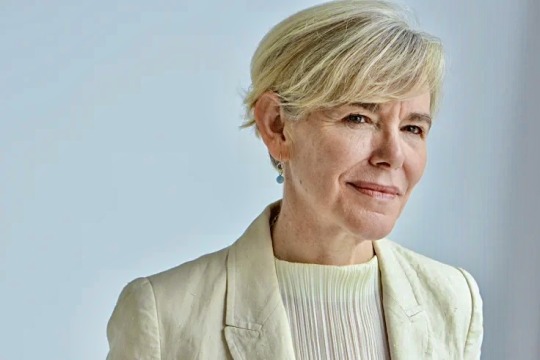
Hilary Charlesworth was the first Australian woman elected to the International Court of Justice. (Photo: Supplied)

An injured Palestinian boy is carried from the ground following an Israeli airstrike outside the entrance of the al-Shifa hospital in Gaza City. (Photo: AP)
Australian judge to rule on genocide case that could upend war in Gaza
An esteemed Australian judge will help decide a crucial case at The Hague that could order Israel to suspend its military operations in Gaza as Israel seeks to rebut accusations it is committing genocide through its war against Hamas.
International law expert Hilary Charlesworth, the first Australian woman elected to the International Court of Justice (ICJ), will be one of the 17 judges to rule on the widely anticipated case, which will hold emergency hearings beginning overnight on Thursday and continuing into Friday (Australian time).
By Matthew Knott
The Sydney Morning Herald - January 11, 2024
•
•
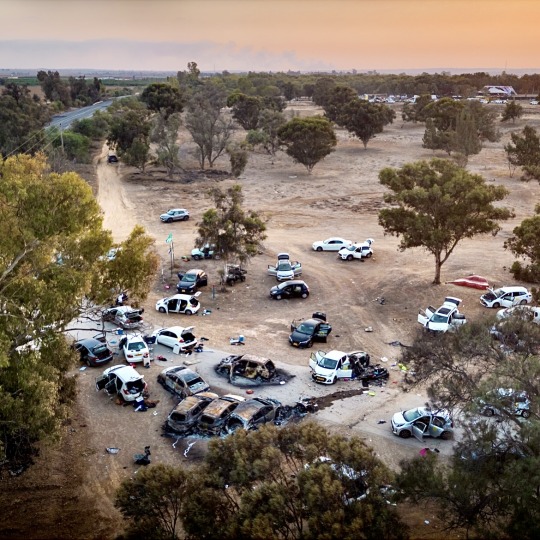
The site of a music festival overrun by Hamas militants during an attack on Oct. 7, 2023.
(Photo: Sergey Ponomarev for The New York Times)
U.N. Expert Will Investigate Reports of Sex Crimes by Hamas, Israel Says
The official accepted Israel’s invitation and is expected to go there soon, the foreign ministry said. Hamas has denied that its fighters committed sex crimes during the Oct. 7 attacks.
By Adam Sella
The New York Times - January 10, 2024
•
#Middle East#Israeli-Palestinian conflict#Israel-Hamas war#Humanitarian crisis in Gaza#International calls for restraint#War crimes#Appeals to U.N. for response to war crimes#ICJ - International Court of Justice#Crimes against humanity#Human rights#Social justice#Ethics#Truth-telling#Israeli-Palestinian peace process
0 notes
Text


The men of YIELD TO THE NIGHT (1956)-Michael Craig (l.) and John Charlesworth
0 notes
Text
LOTD: Troon Pierhead
~sorry for delay - meant for April 11th, 2023~
(from: http://www.ibiblio.org/lighthouse/sctsw.htm)
Troon Pierhead (3)
2010 (station established 1848). Active; focal plane 11 m (36 ft); two flashes, white or green depending on direction, every 6 s. 8 m (26 ft) round cylindrical cast iron tower with lantern and gallery, on a concrete base. Lighthouse painted white with black trim. Rick Waterworth has a photo and Google has a satellite view and a distant street view. Ian Paterson has a 2008 closeup showing the earlier (1904) lighthouse, Trabas has a photo, Marinas.com has aerial photos, and Sarah Charlesworth has a 1973 photo. Located at the end of the west pier, which also functions as a breakwater for Troon Harbour. Accessible by walking the pier. Site and tower closed. Operator: Port of Troon. ARLHS SCO-247; Admiralty A4554; NGA 4732.

(photo found here; ©John Mobbs)
0 notes